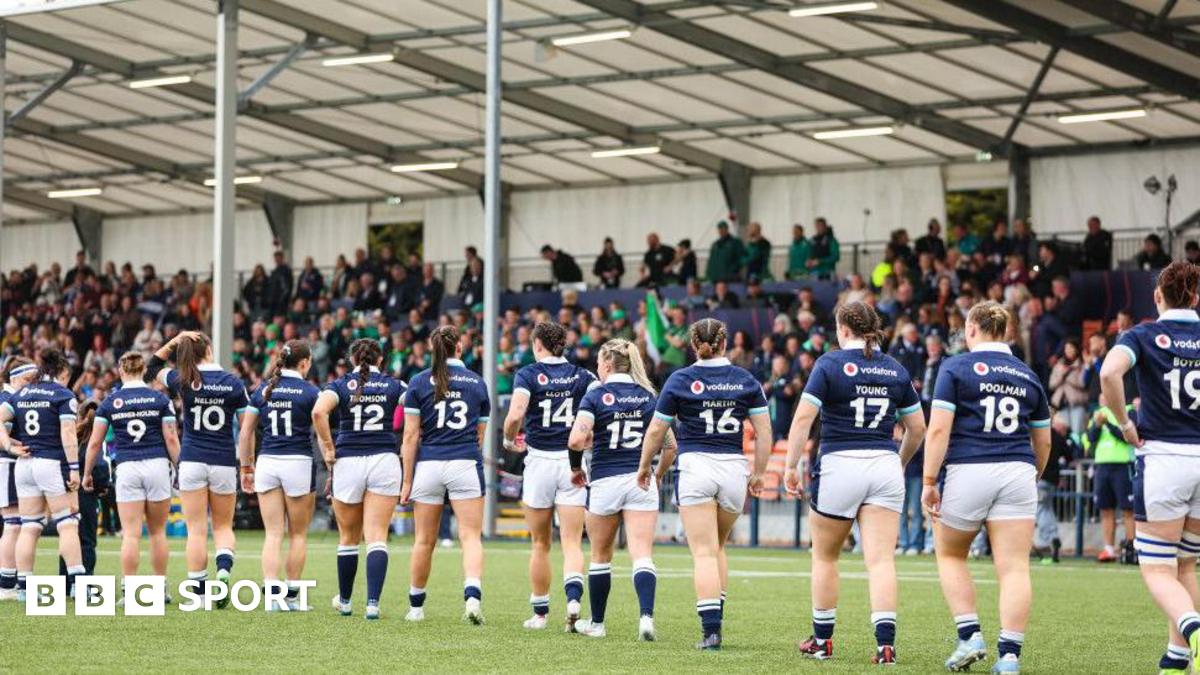Scotland face Canada, Wales and Fiji in their group at the 2025 World Cup Scottish Rugby's "uncomfortable" situation around contracts for the national women's team will be resolved before this summer's World Cup, according to chief executive Alex Williamson. A representative of the squadcontacted the BBCto highlight that some players are continuing to "suffer with their mental and emotional health following the potential loss of contracts". The long statement claimed only 15 members of the 38-player training squad for the World Cup are on year-long contracts, meaning those on short-terms deals could be left looking for new employment after the tournament. "We recognise that it's a little uncomfortable," Williamson told BBC Scotland. "What we have done is given them certainty as to their position for the near term, as in through the World Cup. "But I think we are having excellent conversations and we are very close to providing them with all the outcomes that they are looking for. "Before they play [in the World Cup], they will know exactly what is going on." Williamson says the negotiations to provide the international players with short-term security is taking place in the midst of a drive to professionalise the women's game in Scotland. "What we're trying to do is create an environment for the longer term, which sees professional rugby played in Scotland as opposed to what currently happens, which is we support our players to go and play in England largely," he said. "That is also happening at the same time as the squad preparing for a World Cup. "We are looking to introduce a professional environment in Scotland, a much enhanced commitment to the Celtic Challenge. "From a personal perspective, I think we need our pro teams or our semi-pro teams here in Edinburgh and Glasgow to be competitive enough to be able to convince everyone else involved that we should have a British and Irish league." Standards must improve in order to achieve that goal. "If the Celtic Challenge is weak, there is no common sense conversation to be had with the PWR [Premiership Women's Rugby]," Williamson suggested. "I'd really like to be having that conversation. "So we are creating some quite challenging moments for our players. Because, of course, whilst I think the players will all agree that's a good plan, they don't necessarily want it to happen directly to them in this moment. So it is a bit robust. "We would like other Scottish female players to be given contracts. So it is a delicate balance and none of this is ideal. I absolutely recognise that."
Scottish Rugby aim for contracts clarity before World Cup
TruthLens AI Suggested Headline:
"Scottish Rugby to Resolve Women's Team Contract Issues Before World Cup"
TruthLens AI Summary
Scottish Rugby is facing an 'uncomfortable' situation regarding contracts for the national women's team, which they aim to resolve before the upcoming World Cup this summer. Chief Executive Alex Williamson addressed concerns raised by players regarding their mental and emotional well-being due to uncertainties surrounding their contracts. Out of the 38-player training squad, only 15 members are on year-long contracts, leaving many players with short-term deals facing potential unemployment after the tournament. Williamson acknowledged the discomfort of the situation but emphasized that the organization is working to provide clarity and security for the players. He assured that they would have definitive information regarding their contracts prior to the World Cup, highlighting ongoing negotiations to enhance the professional environment for women's rugby in Scotland.
Williamson explained that the goal is to professionalize women's rugby in Scotland, moving away from the current reliance on players participating in leagues in England. He mentioned the importance of creating a competitive environment within Scottish rugby, aiming to strengthen the Celtic Challenge and enhance the overall standards of the game. Williamson expressed a desire for Scottish teams in Edinburgh and Glasgow to be competitive enough to engage in discussions about a potential British and Irish league. He recognized the challenges faced by players during this transitional phase, acknowledging that while the plans for improvement are beneficial in the long term, they may not align with the immediate needs of the players. The organization is striving for a delicate balance that ensures players receive the necessary support while also pushing for broader structural changes in the sport.
TruthLens AI Analysis
You need to be a member to generate the AI analysis for this article.
Log In to Generate AnalysisNot a member yet? Register for free.
